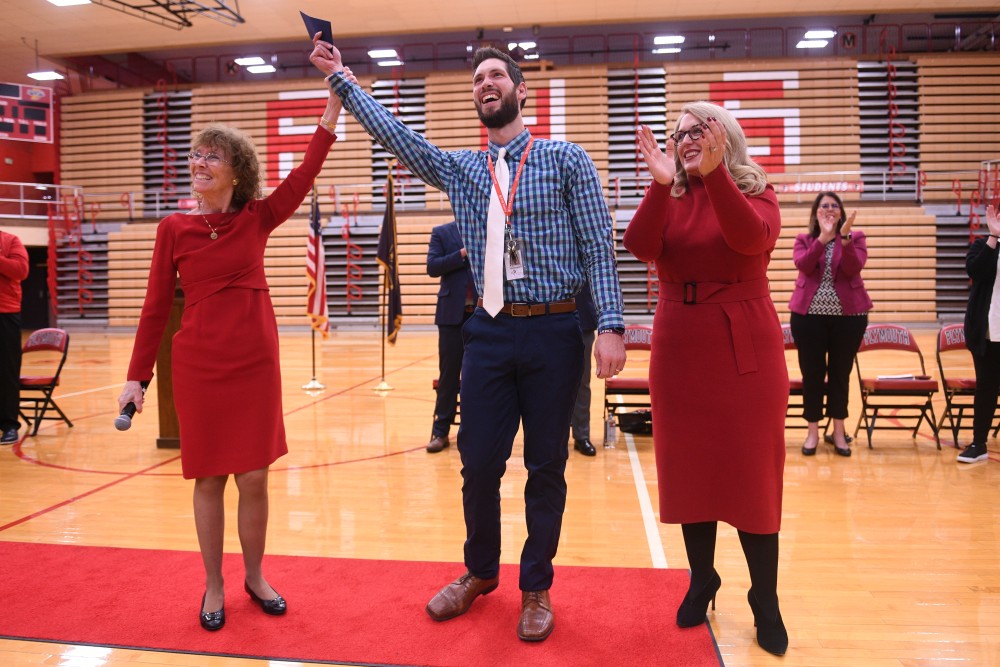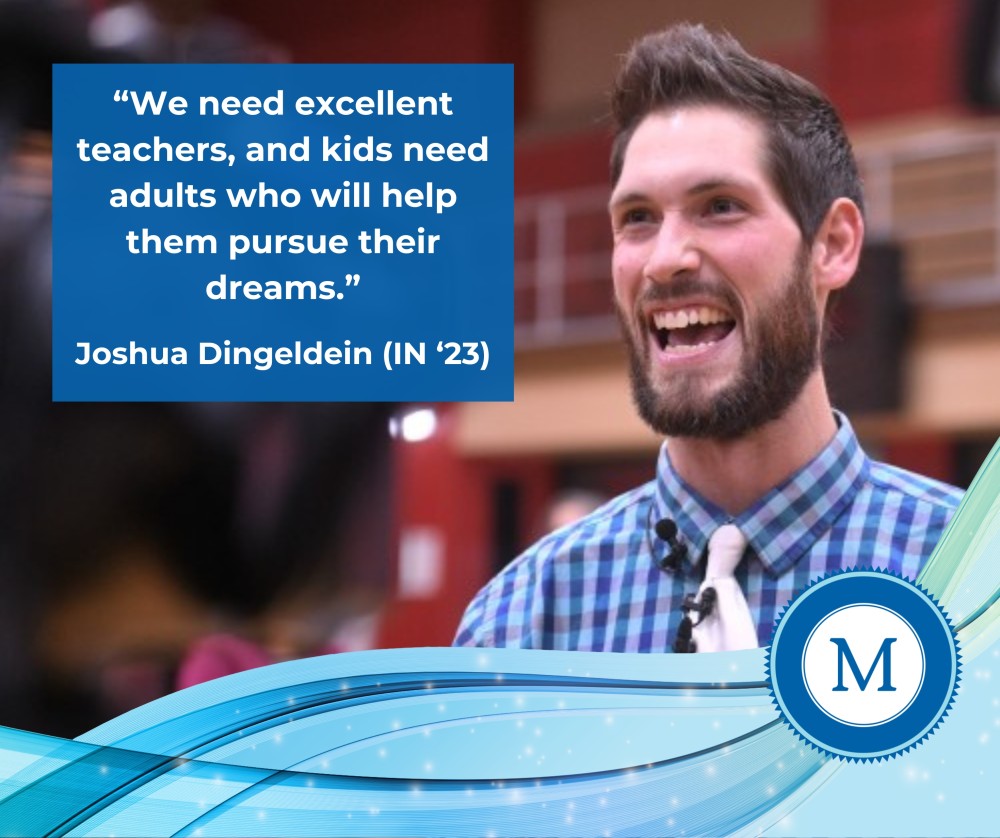Spotlight: Joshua Dingeldein (IN '23)
September 30, 2024
Indiana Milken Educator Joshua Dingeldein is currently an assistant principal at Plymouth High School, having previously served as a ninth and 11th grade English language arts teacher. He utilizes data-driven strategies and new technology to expand his students’ experience. Dingeldein is passionate about mentoring and motivating strong teachers. “We need excellent teachers, and kids need adults who will help them pursue their dreams.” Joshua Dingeldein received a 2023-24 Indiana Milken Educator Award on November 9, 2023.
Milken Family Foundation: How have students responded since your Milken Educator Award surprise?
Since receiving the Milken Educator Award, students have responded in a very kind and encouraging way. Many students have expressed that I am deserving of the recognition, and I remind them that their other teachers are also amazing educators. They were excited that one of their teachers was recognized for their hard work. Numerous students have verbalized the positive impact that I’ve had on their lives, and a few even talked about wanting to become an educator. They have seen the potential impact that a teacher can have.
MFF: Who are your role models as an educator?
My mom taught me all the way up until high school. She consistently amazed me with her ability to make learning engaging day after day. I also had high school teachers who really invested in my life. They noticed me as a person and helped me when I walked through challenging seasons. Additionally, my professors from Taylor University leveraged the classroom setting to really speak truth into my life. They reminded me that learning is not about simply completing an assignment. They helped me understand the difference between the simple completion of an assignment and becoming a master of a skill. They helped foster the desire in me to be a lifelong learner.
MFF: Tell us about your first year of teaching. What memories stand out? Who or what helped you through it?
My first year of teaching was at Hill Campus of Arts and Sciences in Colorado. This is a middle school that is a part of Denver Public Schools. I couldn’t have been blessed with a better first teaching job. It was an incredibly demanding job, but our principal, Sean Kavanaugh, was committed to coaching teachers. This school was the ultimate training ground for teachers. Every week, we focused on high impact “plays” that would maximize student engagement and mastery of the content. Additionally, I had incredible teammates: Sable Edwards and Morgan Kalafa. They really took time to help me with lesson plans, backward design and pacing. We met every morning to review the upcoming lesson and talk through potential challenges students might have with the different activities.
MFF: What do you hope students remember after having you as a teacher?
After having me as a teacher, I hope students remember the life lessons they learned as well as the academic knowledge. I want them to remember that they can accomplish challenging goals and that their lives have significant value.
MFF: How have you used ChatGPT in your time as an educator?
At first, I didn’t leverage ChatGPT because I wanted to make sure students understood what quality writing really looked like. However, I certainly view ChatGPT as a tool. Rather than having students simply draft a paper with AI, I had them complete their own first draft. Students completed the first draft under a time constraint, which was normally a single class period. The next day, students engaged in a writing workshop. This day consisted of four to six different stations that focused on specific parts of writing. Some stations focused on the syntax being used, the rhetorical choices incorporated, or even the complexity of the vocabulary words. Sometimes a station would be a peer-review station or a self-review station. This allowed students to really focus on the development of ideas.
After those steps were completed, I allowed students to leverage ChatGPT for immediate feedback. Now, at the time, ChatGPT was still a little broad in the responses and feedback; students were still able to use it to identify weak vocabulary words, repeating sentence structures, an underdeveloped idea in the commentary, and simply grammar and usage errors. Students spent multiple class periods using their own brain. Generating, developing, and reflecting on ideas they created. After they put forth that type of critical thinking, we leveraged AI to give immediate growth areas.

MFF: What advice would you share with people who are interested in becoming teachers?
I would just really encourage those thinking of becoming educators to make sure they have a strong reason for wanting to teach. It’s almost like a “What’s your WHY?” for teaching. We need excellent teachers, and kids need adults who will help them pursue their dreams. There will be great days and challenging days. If your “WHY” is truly about helping others, you’ll get that chance every day.
Don’t miss any new articles and updates from Milken Educator Awards:


